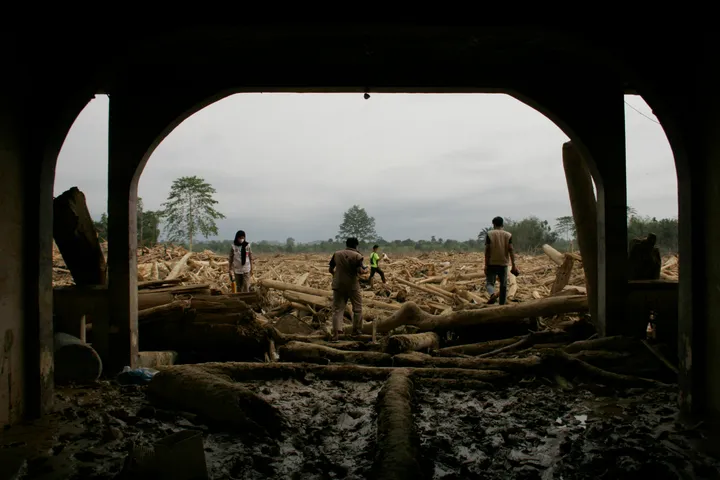Turkish President Recep Tayyip Erdogan’s recent visit to Sudan, the first ever by a Turkish President, comes against a backdrop of ongoing diplomatic and military flux for both countries, even for a region that is characterised by its volatility.
But every problem also poses opportunities.
The current geopolitical tensions afford both nations the opportunity to analyse the costs and benefits of their current relationships with other nations and blocs. It also creates room for consideration of the potential advantages of deepening the already burgeoning relationship between the two countries.
Turkey and Sudan have deep-rooted historical, cultural, social and religious ties which have served as a firm foundation for a strong economic partnership in many fields such as finance, agricultural production, higher education, defence, mining, energy, health and tourism.
The two countries also have a strong tradition of supporting Arab and Muslim causes. From the Syrian crisis to the plight of the Rohingya and from resisting US interference to supporting the Palestinian cause and the status of Jerusalem, Turkey and Sudan are on the same page.
So might this relationship be the basis of something far greater?
From the Sudanese point of view, many questions are currently being raised about to its dependence on the US and the Arabian Gulf states, with the United Arab Emirates posing a particular challenge.
The US sanctions that had been in place since 1997 were formally lifted, with the assistance of Saudi Arabia, in October. But Sudan has yet to see any tangible benefit from this; all imports and exports are still subject to stringent controls and financial transfers remain very difficult to process.
The lack of hard currency has resulted in a steep devaluation of the Sudanese Pound and inflation has risen. Businesses wishing to invest in Sudan and the millions of Sudanese expatriates wishing to send money back home still face the same difficulties they did when the sanctions were in place. Moreover, Sudan remains listed as a “state sponsor of terror,” which carries severe political and financial ramifications over and above that of economic sanctions.
Political analysts in the region have pointed out the stark contradiction between how Sudan is treated in this regard in comparison to states such as Lebanon, where Hezbollah, an internationally designated terror group, is a coalition partner in the government, and where many organisations linked to it are dealt with very gently by the US under the pretext of preserving that country’s national unity.
Many Sudanese would, therefore, ask why their national unity is of less importance in the eyes of the US than that of other countries in the region and ask what benefit there is in working so hard to provide the transparency required for the lifting of sanctions.
Another difficulty Sudan has found itself in, due to these long-standing relationships is the war in Yemen. According to official Sudanese sources, it has lost more than 500 troops in the fighting there, while unofficial estimates put the real total at many times, which is perhaps why there has been what some have described as the beginning of a withdrawal of Sudanese troops from Yemen earlier in December.
Also, Sudan has had several land and maritime boundary disputes with Egypt. The latest of these being the dispute between Egypt and Saudi Arabia over the Red Sea islands of Sanafir and Tiran. Sudan has not received the support it had expected from its partners in the Gulf and has had to resort to the UN for assistance.
Then there are the regional misadventures by some Gulf states and the prospect of the Trump administration’s imminent regional “peace” plan which threatens to ignite an already volatile Arab street.
It is for these and other reasons that Sudanese President Omar al Bashir reached out to Russia last month on a high-level trip to Sochi, offering the Russians among other things, the opportunity to build a military base on the Red Sea.
But is there a better alternative?
From the Turkish perspective, NATO membership has not brought the benefits that it had hoped for with regards to the war in Syria, PKK terrorism and a host of other issues.
The same NATO allies that rallied to the US’ side and adopted an “all for one and one for all” stance following the attacks of September 11, 2001 have been lukewarm in their support for Turkey following the terror attacks that have hit the country in recent years, and especially after the failed coup attempt.
Relations with the Trump administration are strained, not least due to its repeated stalling of the extradition of fugitive cleric Fetullah Gulen, and then there is the diplomatic dispute with the UAE, whom Turkey accuses of financing the failed military coup against its democratically elected government.
In contrast, Sudan and Turkey have much to offer each other.
Their locations are strategically vital. Turkey straddles both the East and the West. Sudan is positioned on the Red Sea and in the heart of the Islamic world and Africa – both areas of huge economic and cultural development. They have a skilled and diligent workforce and significant natural resources. Sudan’s cultural ties with Turkey are deep and rich – Sudanese youth watch and associate with Ottoman dramas like Ertugrul and Sultan Abdul Hamid II in far greater numbers than they do the Arabic dramas which are broadcast from Cairo and Beirut.
Sudanese students in increasing numbers are choosing to complete their higher education in Turkey instead of other Arab countries or even the West, where high costs and rising Islamophobia has resulted in many people altering their plans.
"The world is bigger than five," is one of the cornerstones of modern Turkish foreign policy. This has meant that in recent years Turkey has embraced a diverse range of nations and their causes in an effort to shape a new world order based on common goals and values rather than vested interests. This is based on the belief that every nation is important and should have a voice, and that it is incumbent upon stronger nations to come to the aid of those who are denied a view or are silenced into submission.
In this regard, and in light of recent events, if the recent high-level presidential trip were to result in enhanced ties between the two countries, it would send a very clear and positive message to the region and the world that every crisis and conflict can, in its own way, represent real opportunities.
























